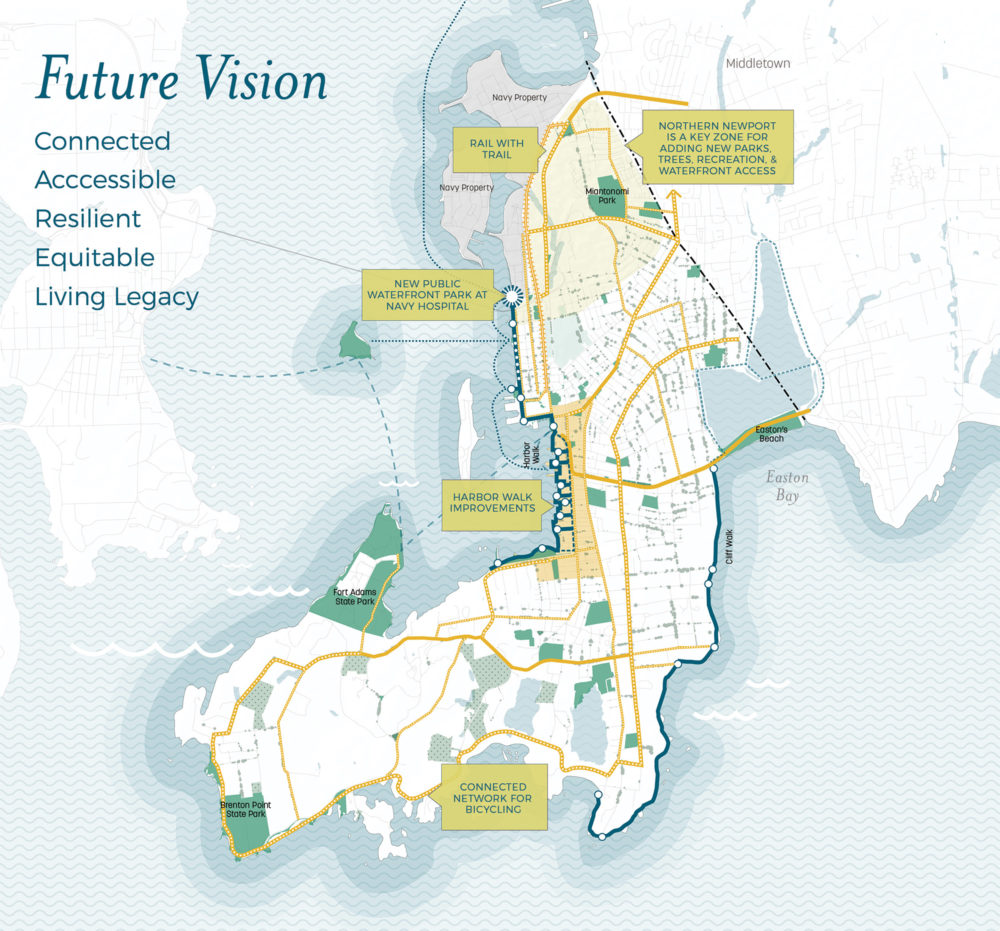
Newport Trees, Parks, and Open Spaces Master Plan
Newport, RI
 Sasaki
Sasaki
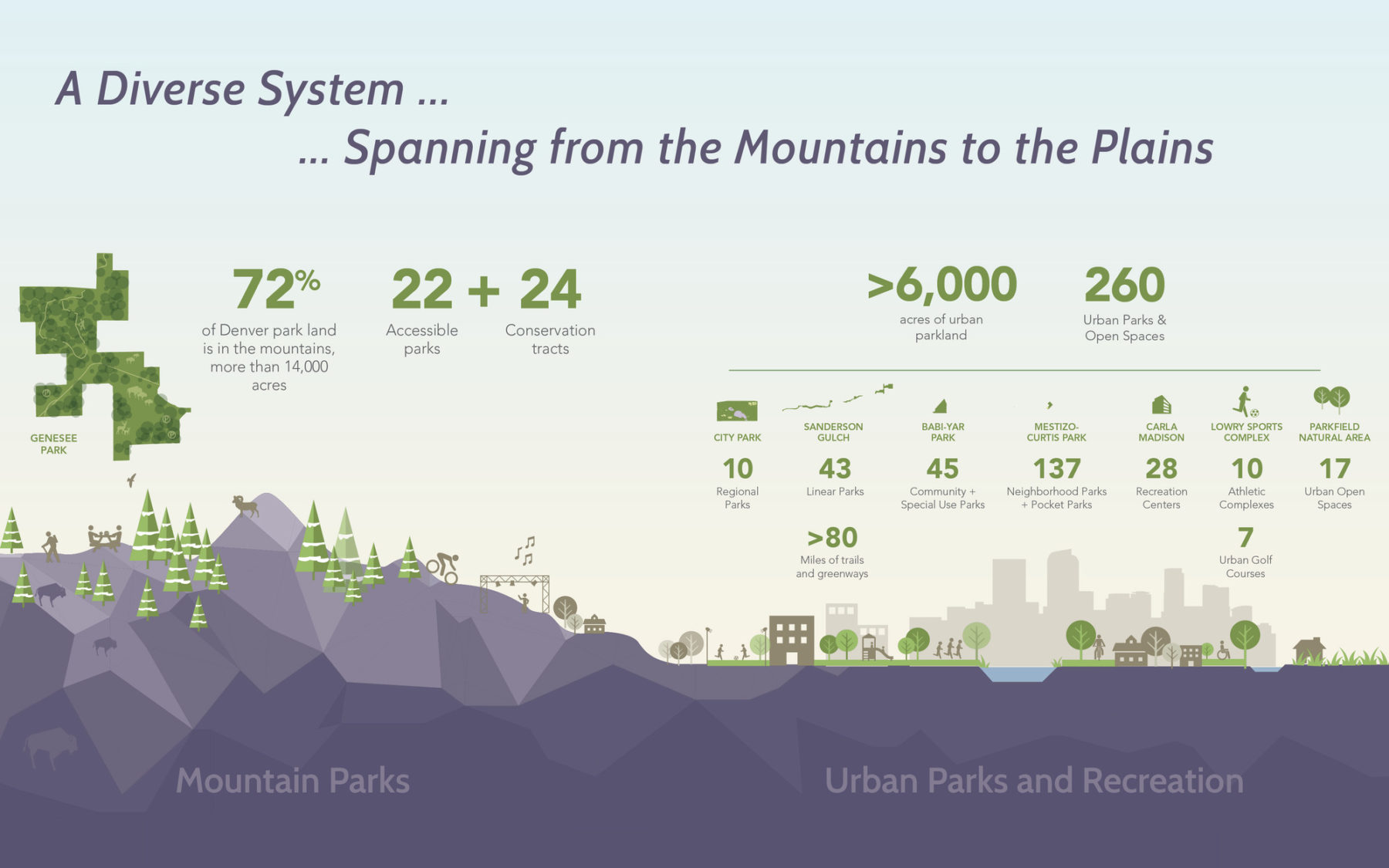
Game Plan for a Healthy City is a park and recreation plan for Denver’s urban and mountain park systems built upon input from more than 6,000 voices. The plan that proclaims safe and easy access to parks and open space, a healthy lifestyle, and a healthy environment are basic rights for every resident.
Sasaki worked with Denver Parks and Recreation on this citywide plan for parks, open space, and recreation. Built from input from more than 6,000 residents, stakeholders, and staff members, the Game Plan provides a vision and a strategic roadmap for the future of Denver’s diverse parks and open space system. Over the next 20 years this strategic master plan will guide and inform the development of specific park improvement plans, new policies and regulations to protect and expand parks, and annual management actions and capital investments.
In a city as active and diverse as Denver, a great park and recreation system is essential to quality of life. There is no question that Denverites love their parks; and, they have one of the most diverse, expansive, and historic park and recreation systems in the West. Within the city limits, the system encompasses over 260 urban parks totaling over 6,000 acres, from urban plazas to natural areas. Highlights include 150 playgrounds, 28 recreation centers, 24 lakes, 80,000 trees, more than 80 miles of trails, 34 designated parkways, 10 off-leash dog parks, 29 pools, 300 athletic fields, and 8 public golf courses. Beyond the city limits, Denver residents also have access to an extensive system of city-owned mountain parks and conservation areas totaling more than 14,000 acres.
However, Denver’s parks and recreation system is facing unprecedented challenges environmentally and economically, and it is not fully meeting the needs of all neighborhoods. Parks and green space are critical to quality of life, but recent development has outpaced the growth of green space. In addition, many neighborhoods lack access to nature experiences and the outdoor lifestyle Denver is known for. In response, the Game Plan focuses on growing the system, meeting the needs of an increasingly diverse community, and expanding access through improved connections.
The vision for the 2019 Game Plan for a Healthy City emphasizes the essential roles that parks and recreation services play in creating equitable, livable cities. The plan views parks as key “infrastructure” for the city—as important to community health, economic development, and city function as road networks, water, and other kinds of urban infrastructure.
Nearly 6,000 community members came together to provide input and feedback that shaped the Game Plan through public forums, online surveys, a statistically valid survey, and participating at existing events. In addition the Game Plan reflects additional input from staff and stakeholders, shared through the Healthy City Roundtable, stakeholder meetings, staff focus and working groups, and the Game Plan Task Force.
The Denver Game Plan was developed in coordination with Blueprint Denver, the city’s comprehensive land use plan. The two plans include complimentary policies and strategies that together position parks, open spaces, and recreation amenities as “quality of life infrastructure,” central to a complete city in the future.
The Game Plan provides a roadmap for implementation, including strategies, policy guidance, metrics, and action steps. Together, these recommendations help support a healthier, equitable, fiscally sustainable, and greener system.
The Game Plan and public feedback gathered throughout the planning process have already supported new funding and implementation support.
Denver voters in November 2018 approved Measure 2A, a 0.25% sales tax dedicated to the improvement and expansion of Denver Parks. The additional tax funds, combined with existing city general funding, will create new opportunities to realize Game Plan goals in areas like land acquisition, maintenance, new construction of parks and trails, and natural restoration.
In addition, the Denver Park Trust was launched as a nonprofit to support city’s park system in August 2019.
Developed through collaborative staff working groups, the Game Plan’s 3-Year Action Plan provides a near-term roadmap. This roadmap will be updated every few years, helping the Game Plan be a living document to support continued enhancement, protection, and growth of Denver’s parks and recreation system.
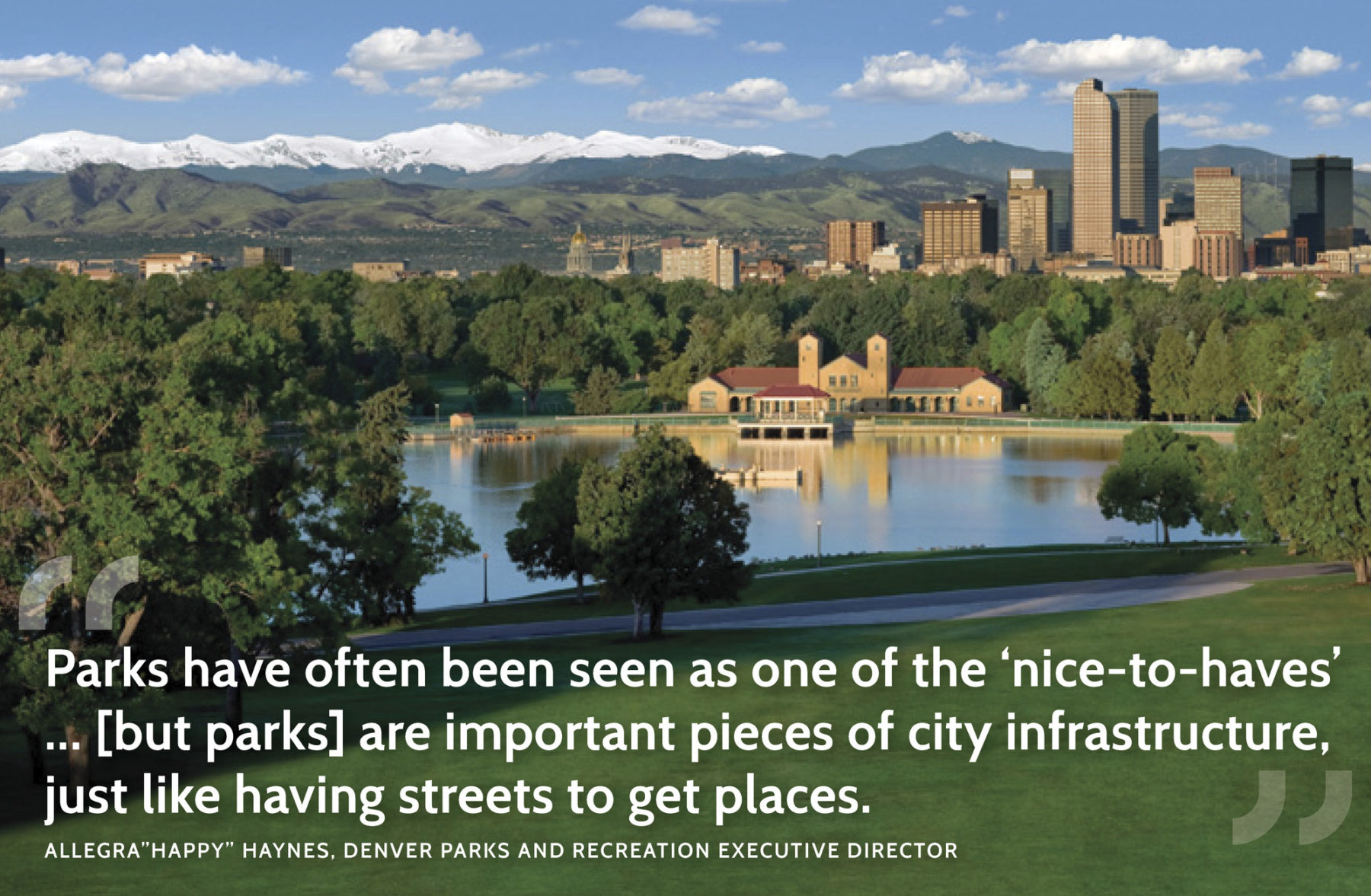
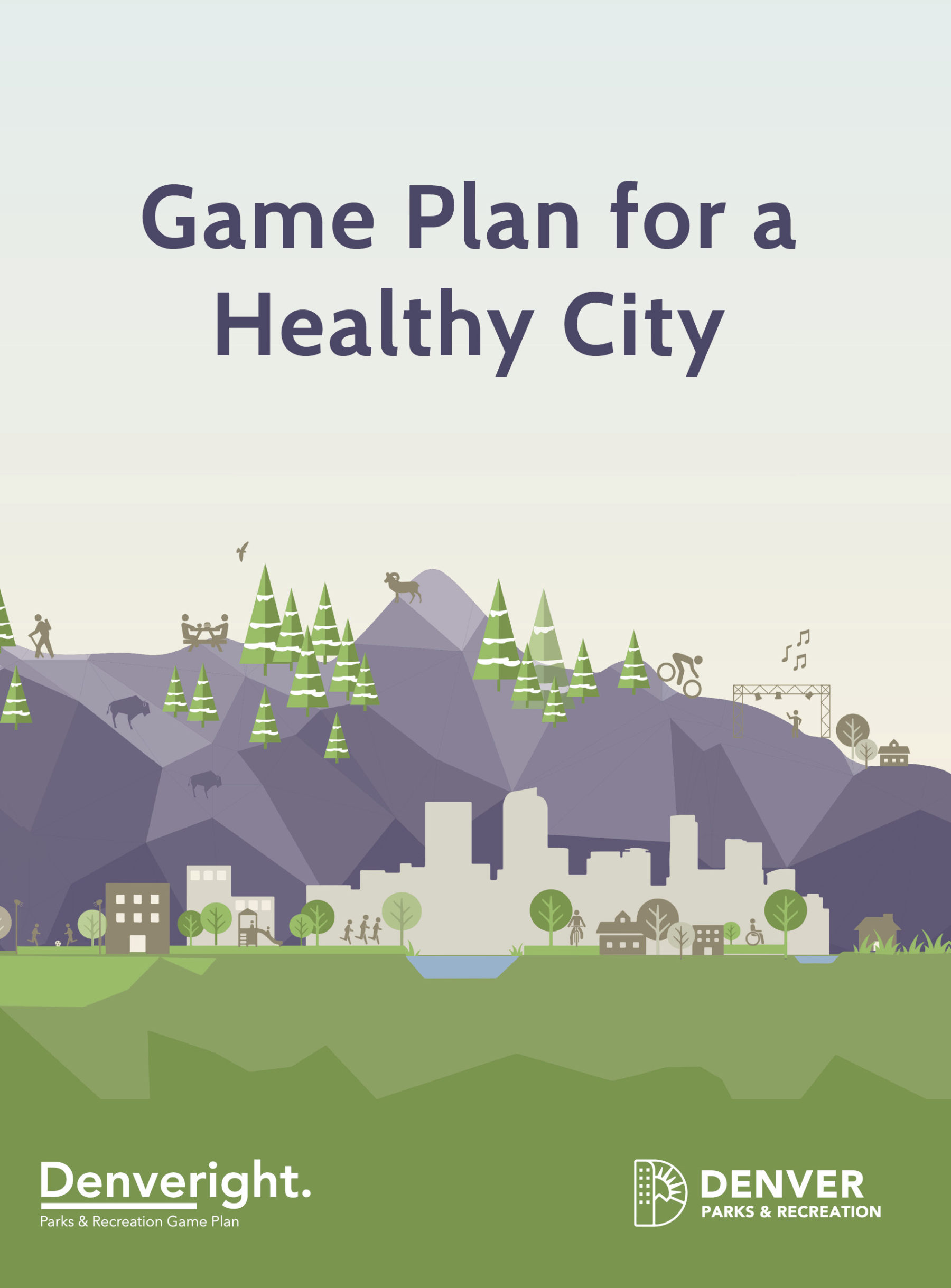
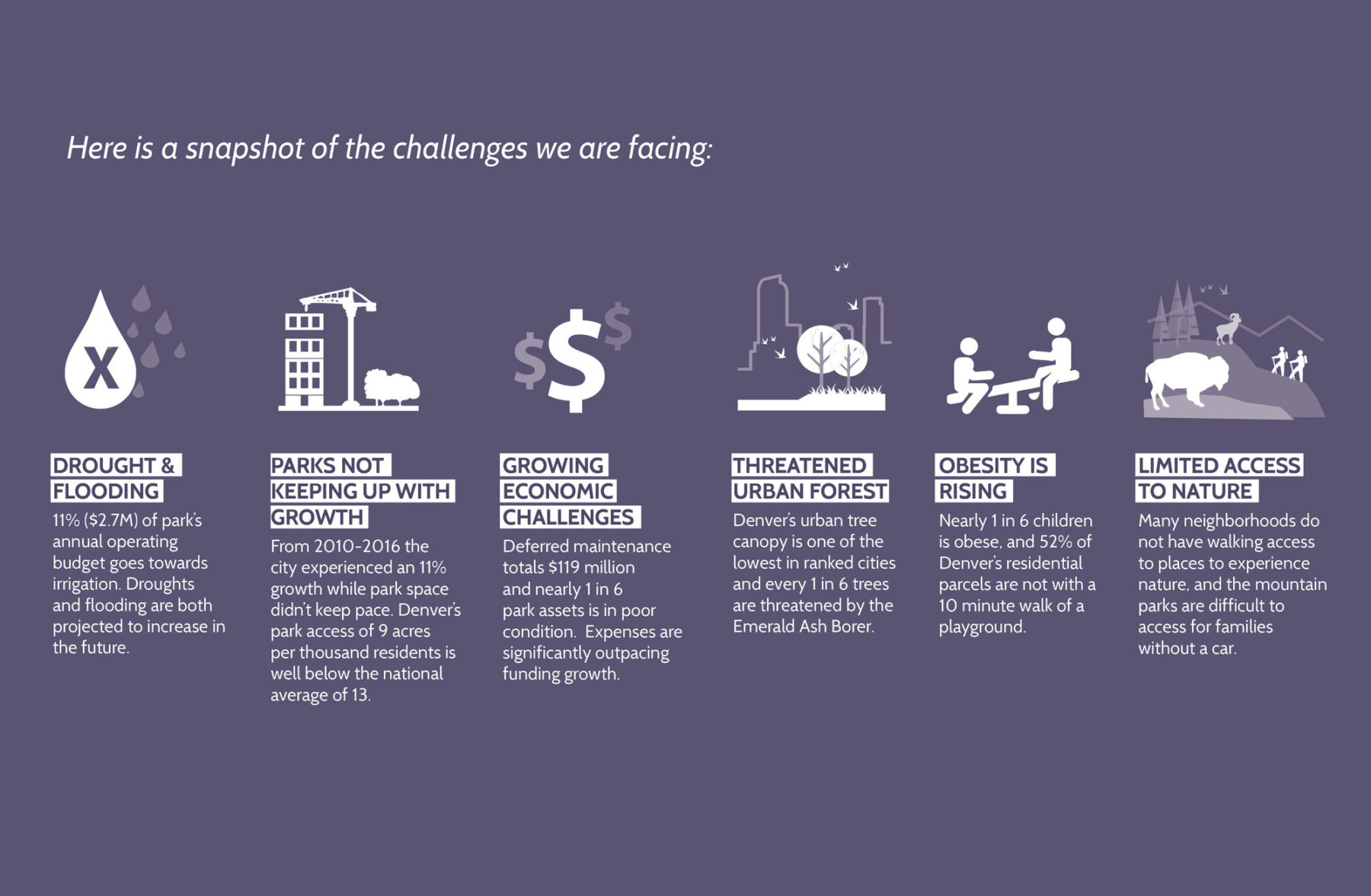
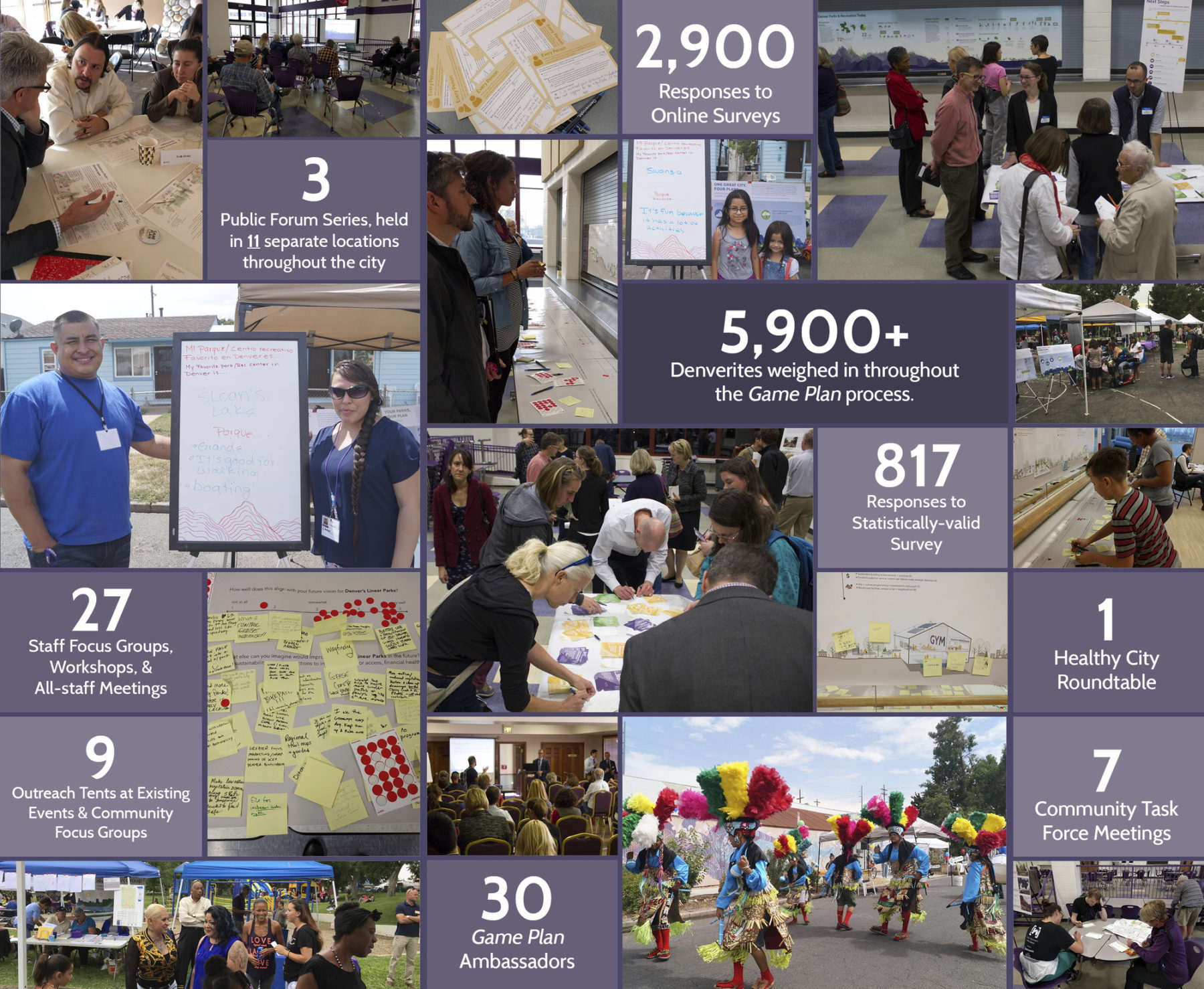
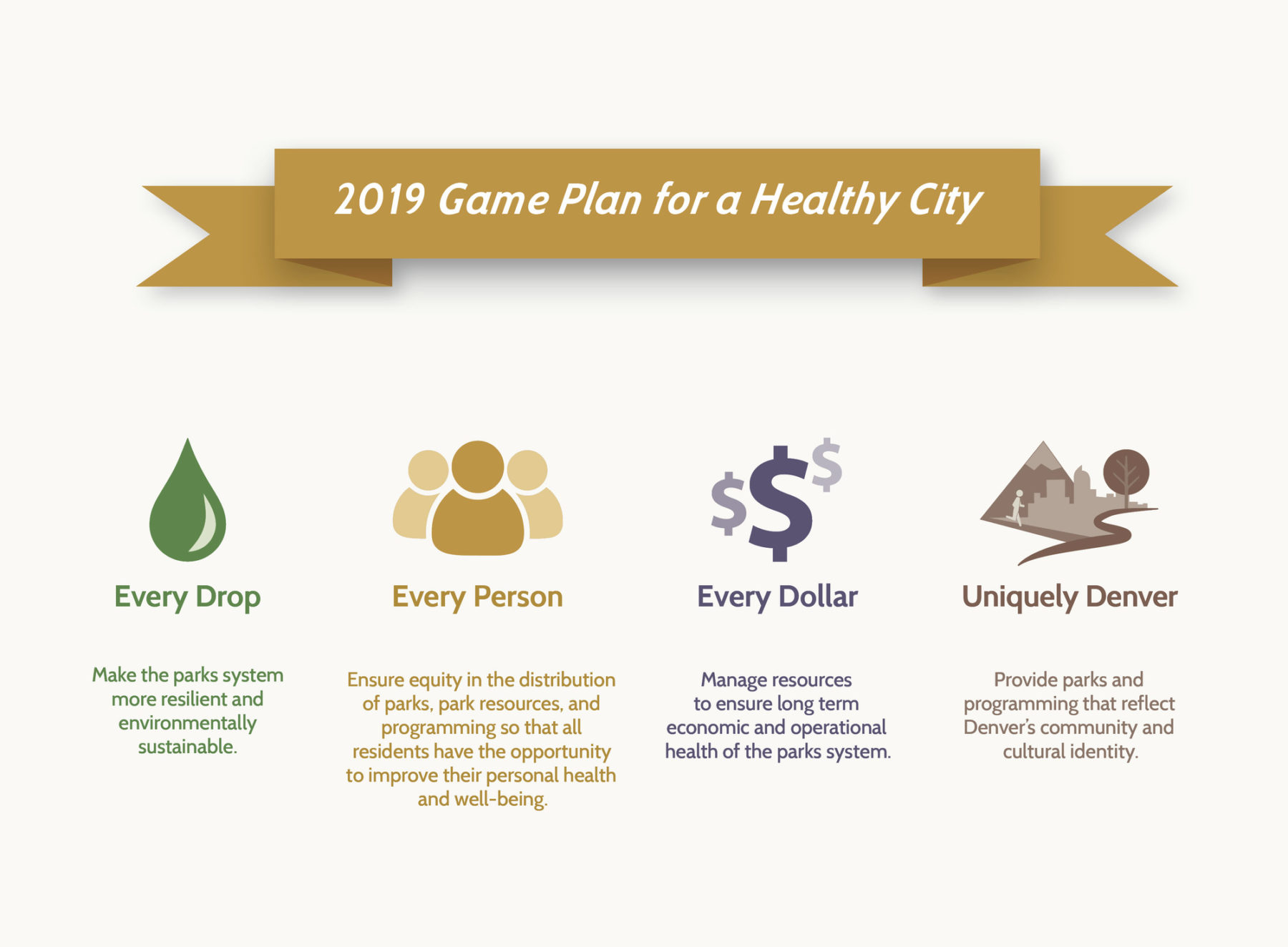
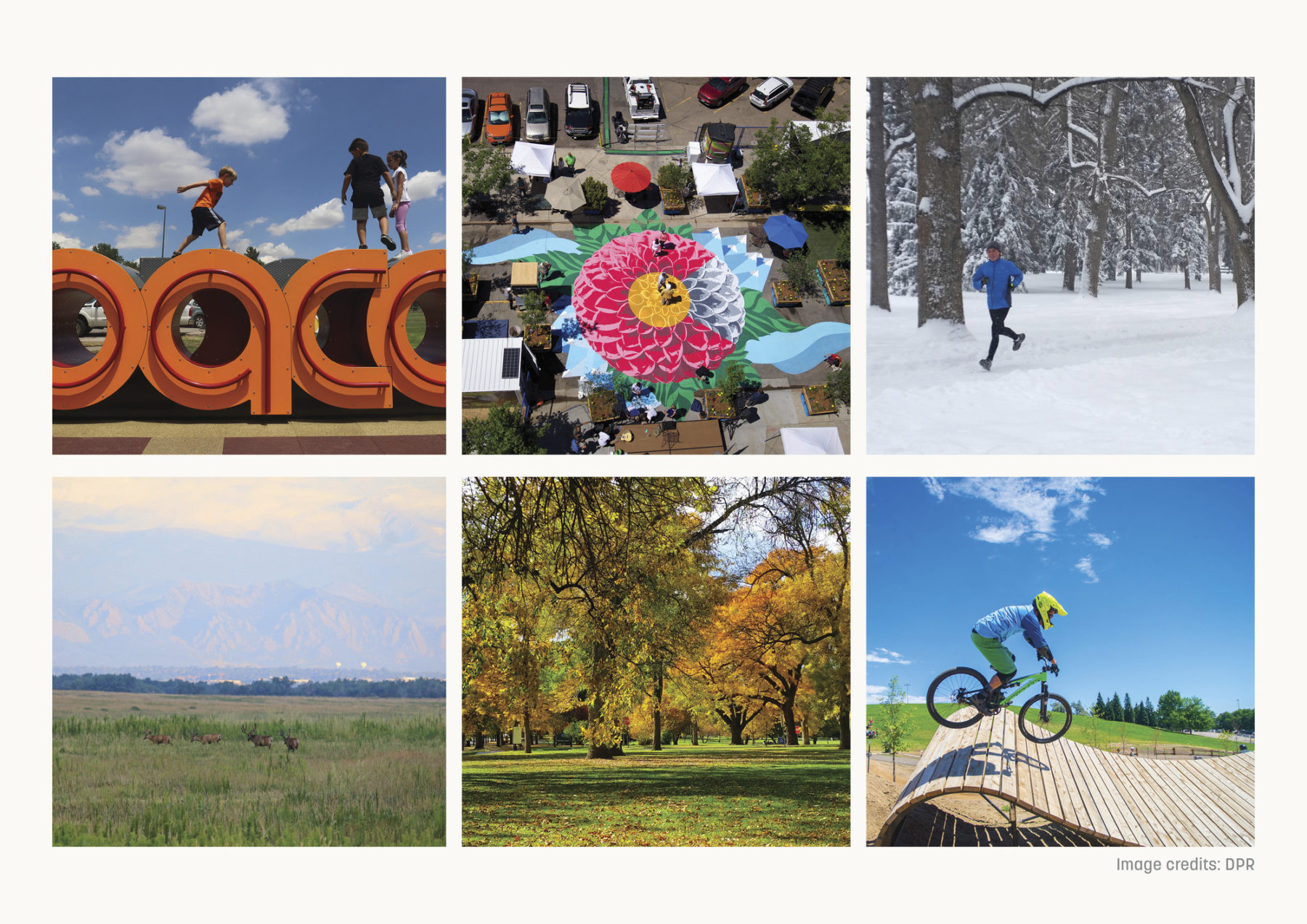
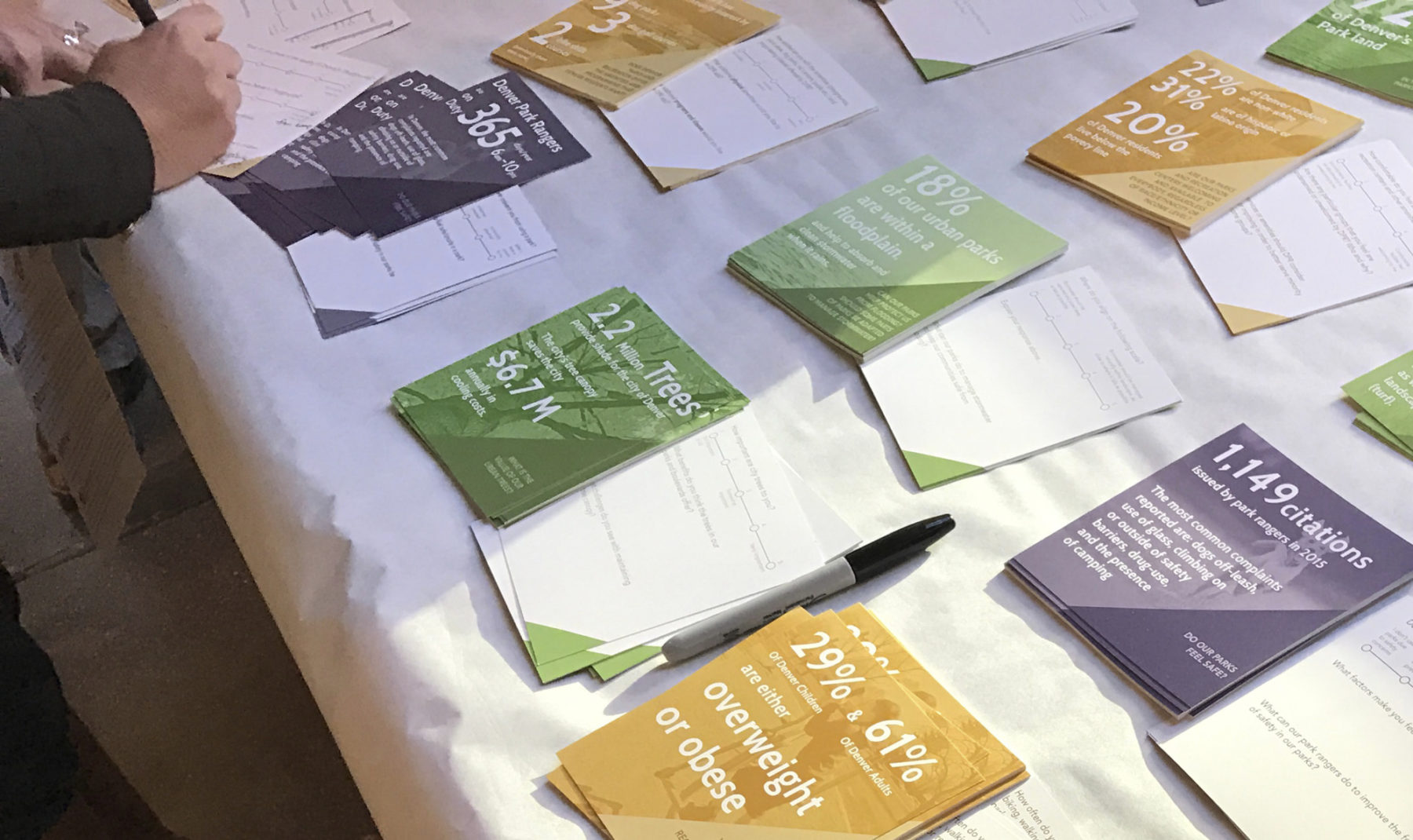
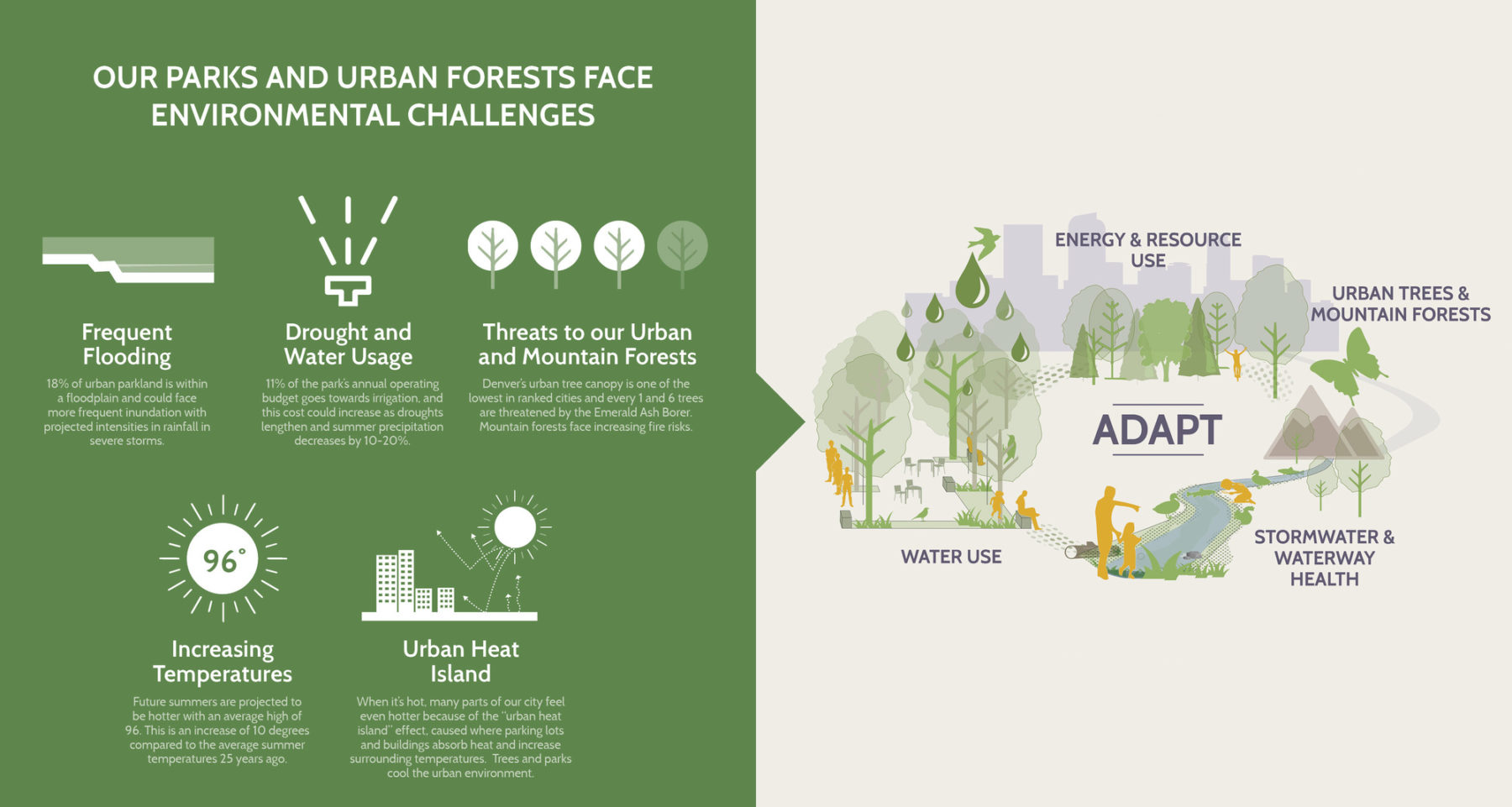
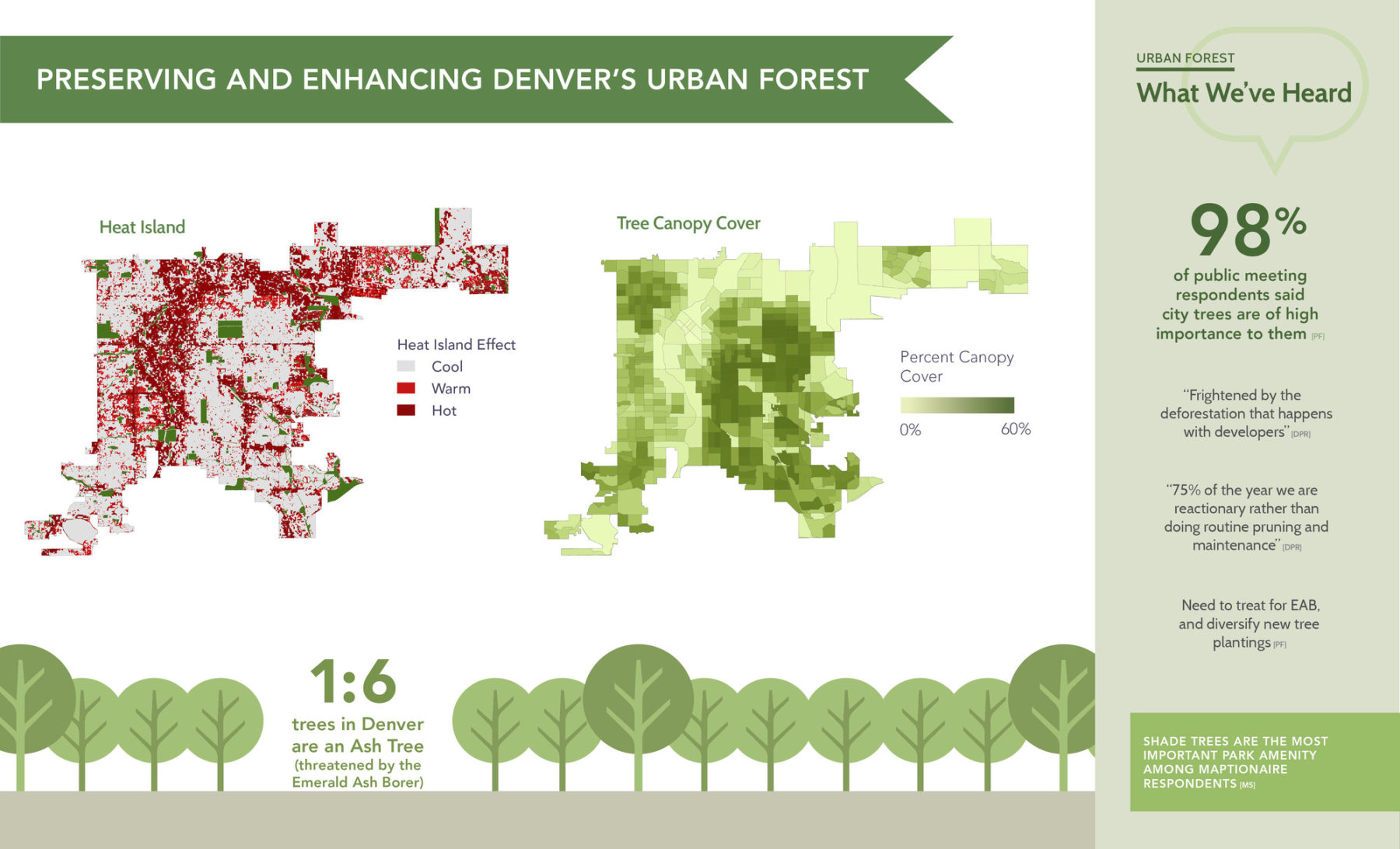
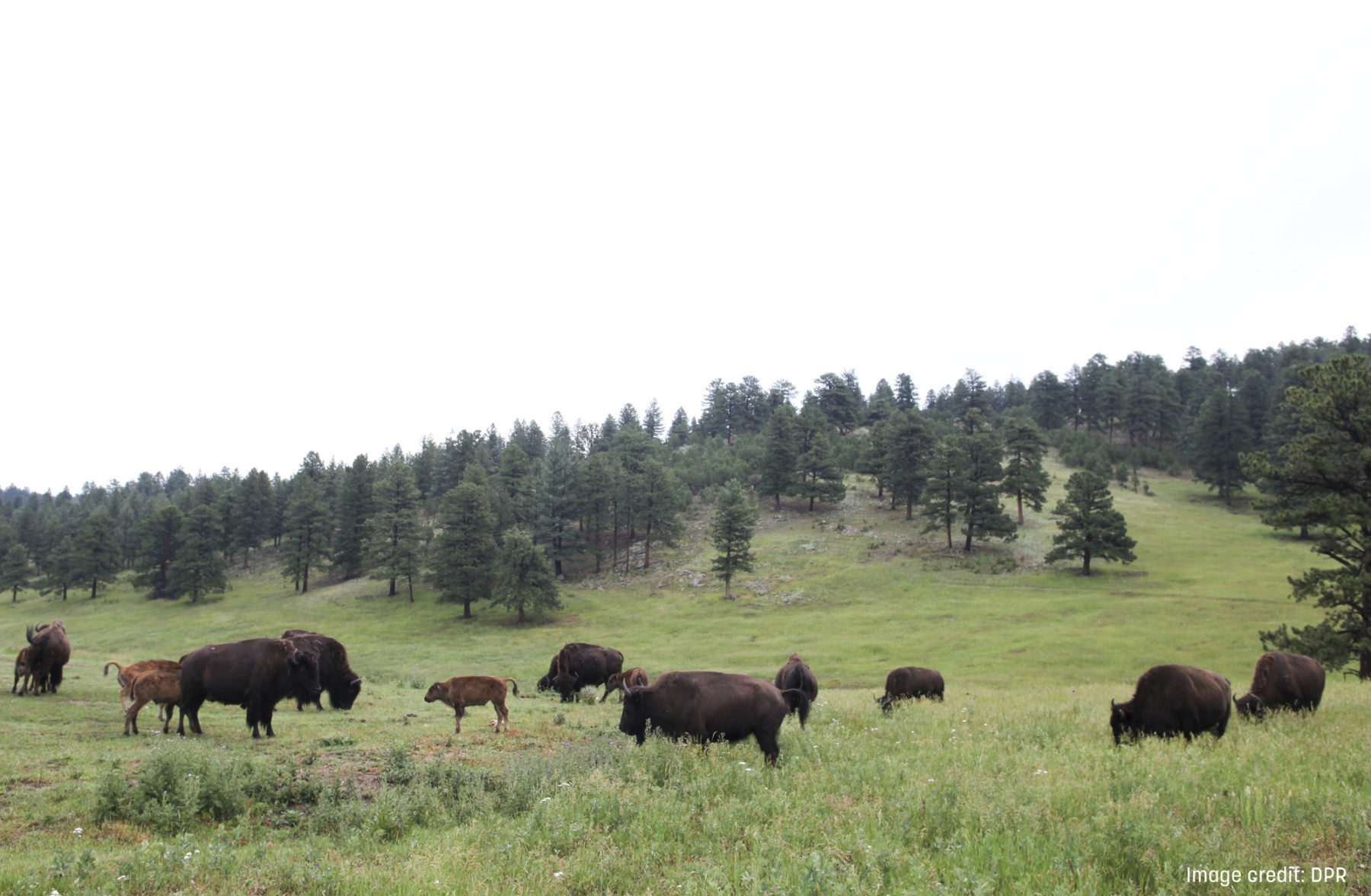
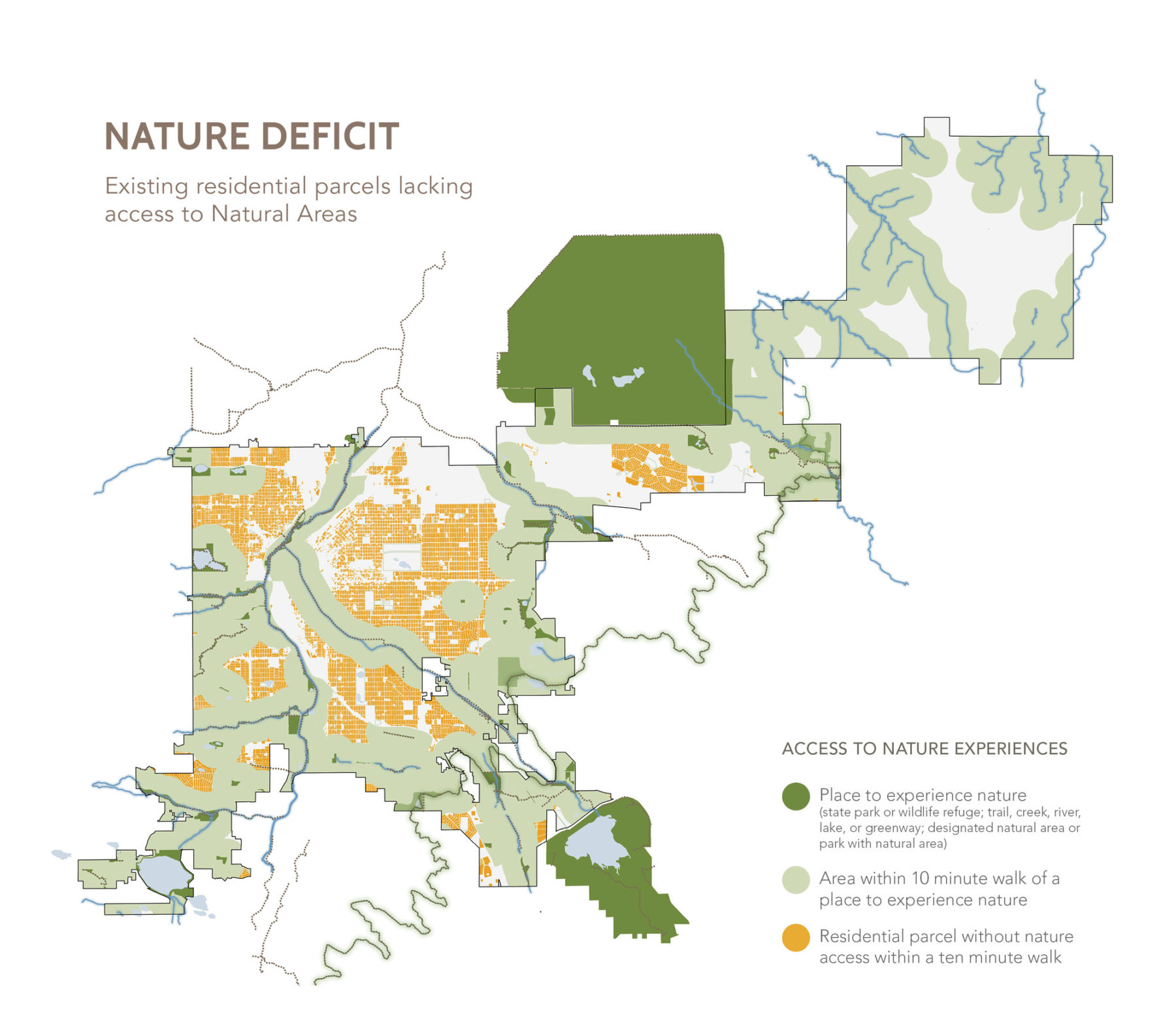
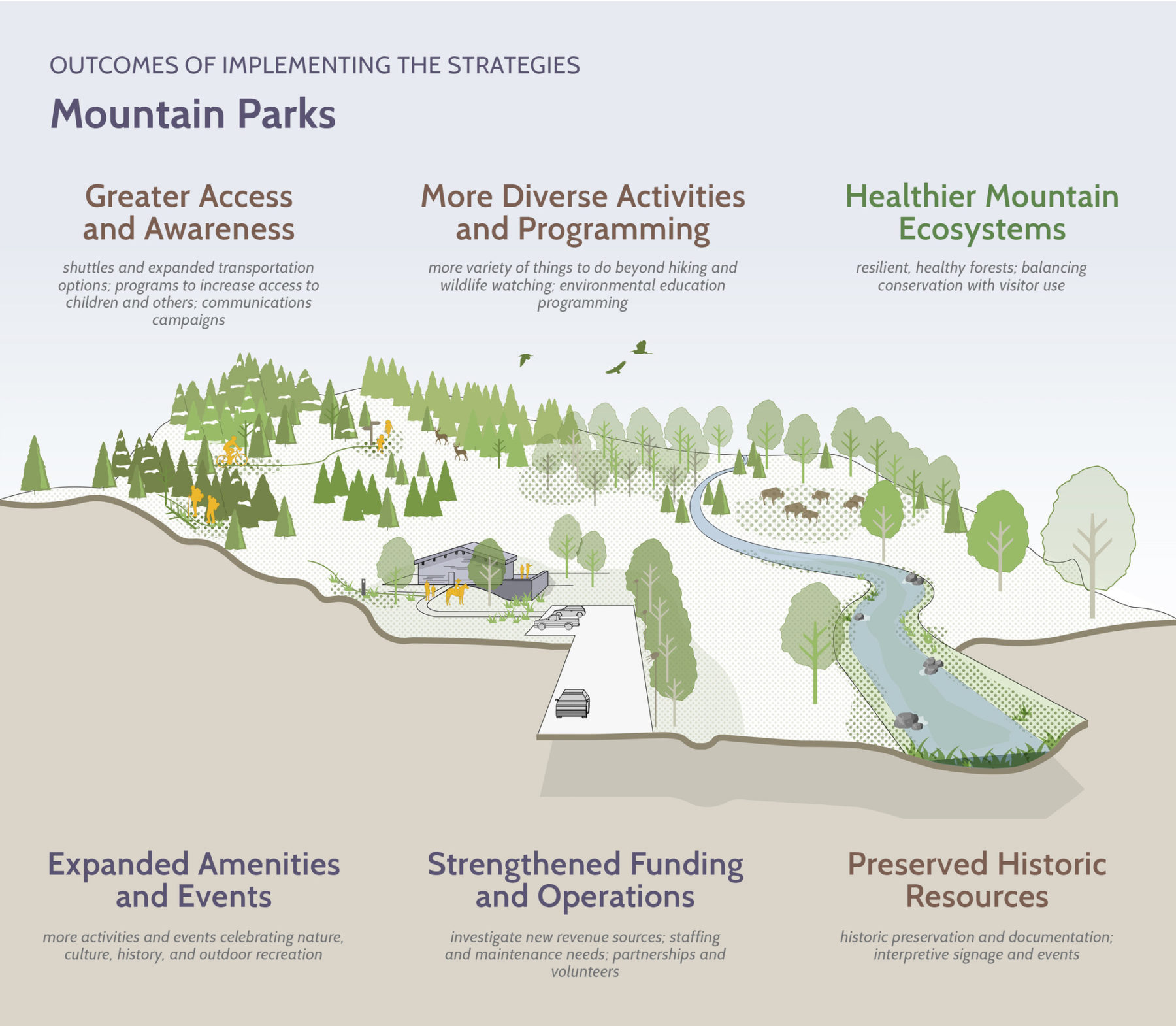
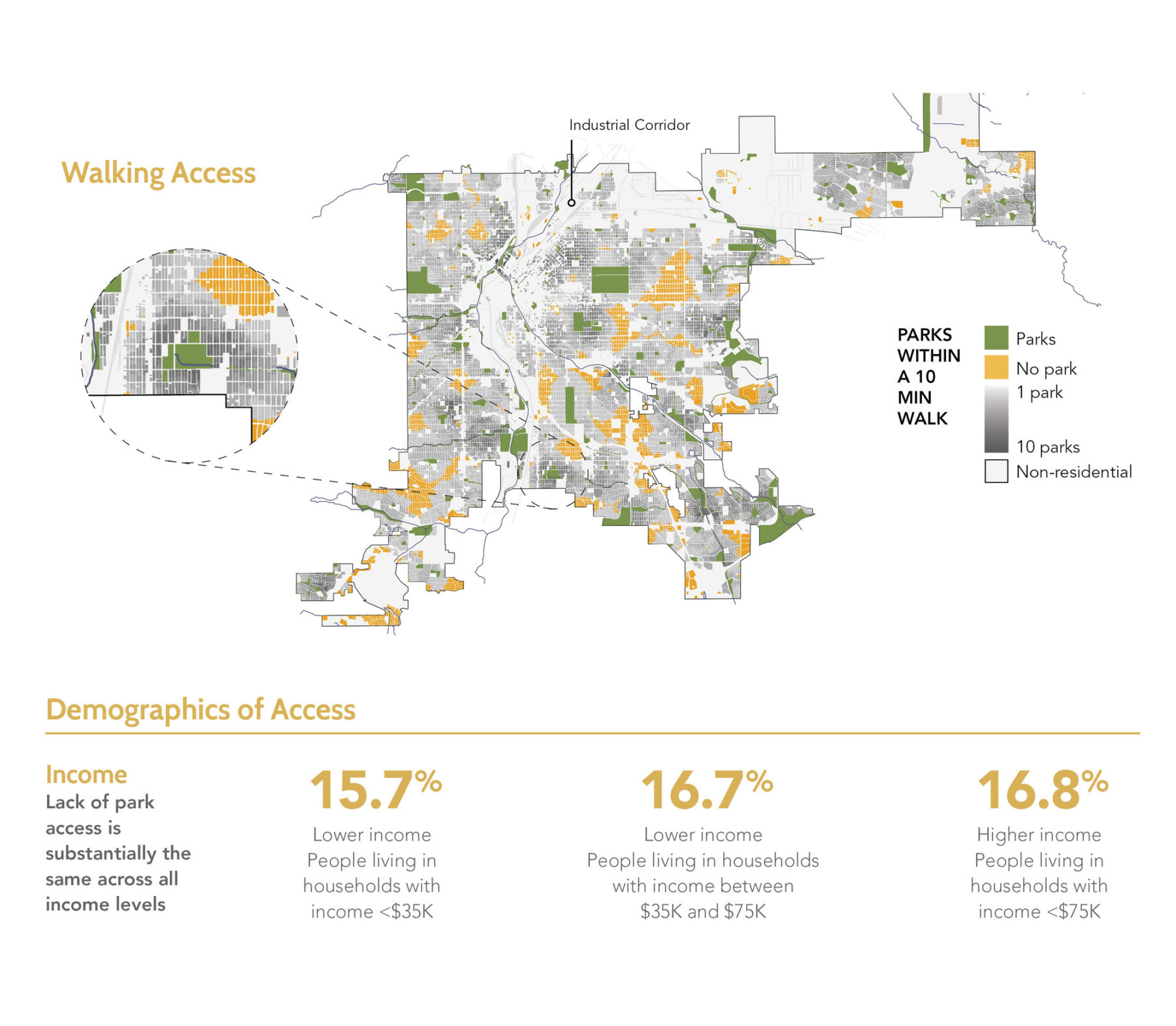
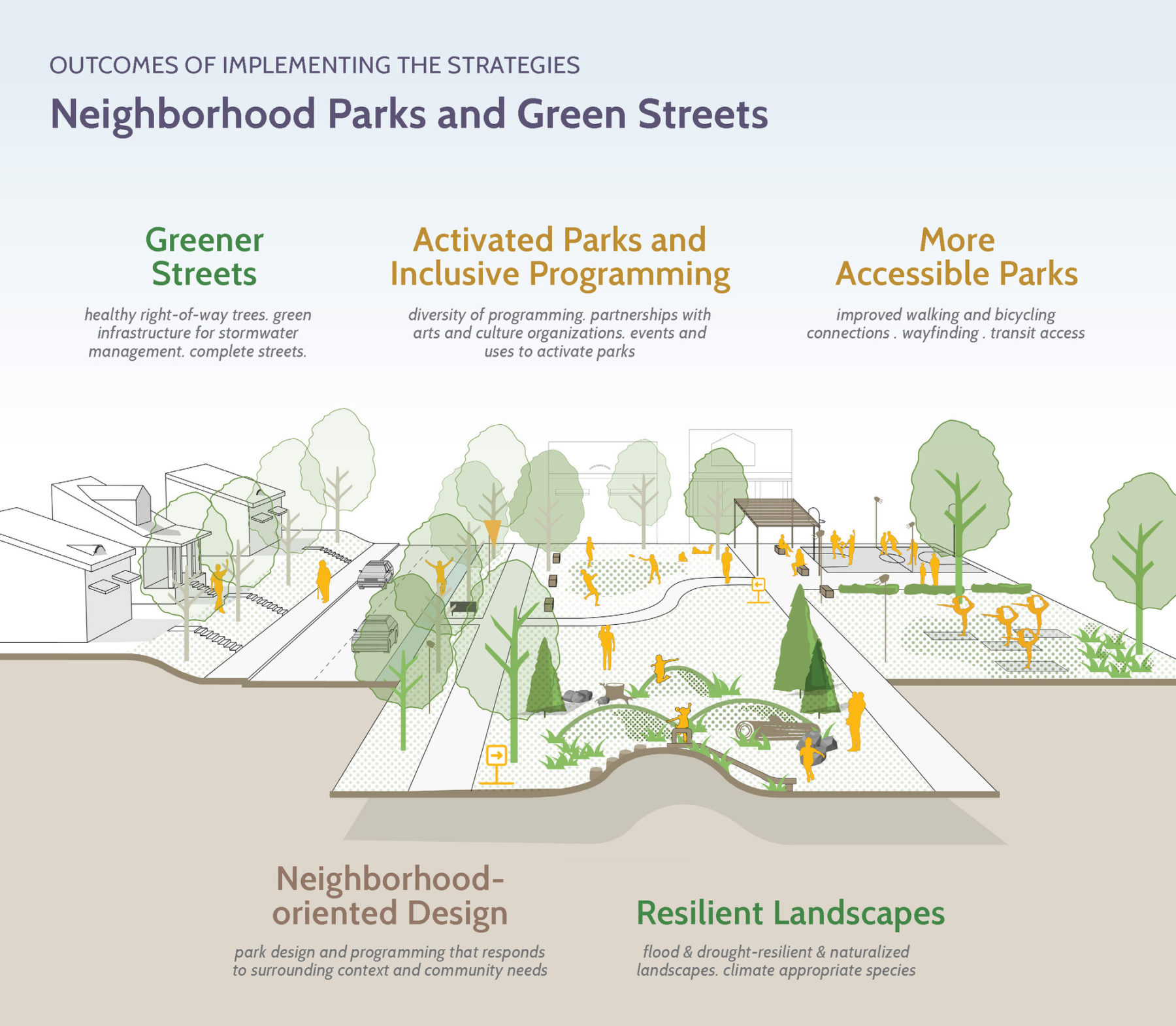
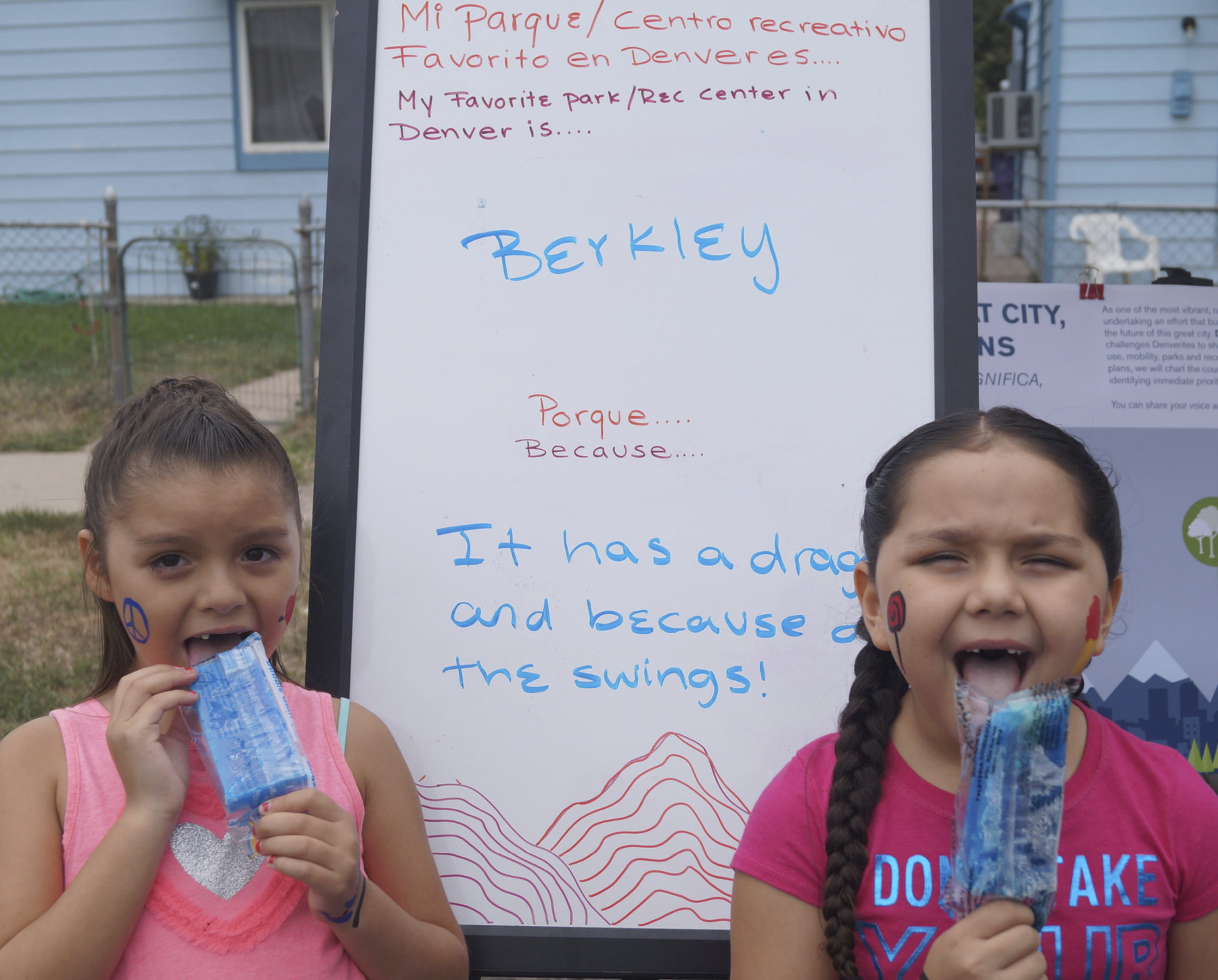
For more information contact Mark Dawson.